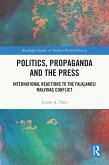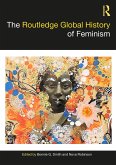How did liberationist Christianity develop in Argentina between the 1930s and early 1970s? And how did it respond to state terrorism during the Dirty War?
Understanding the movement to be dynamic and highly diverse, this book reveals that ecclesial and political conflicts, especially over Peronism and celibacy, were at the heart of the construction of a liberationist Christian identity, which simultaneously internalised deep tensions over its relationship to the Catholic Church. It first situates the rise of a revolutionary Christian impulse in Argentina within changes in society, in Catholicism and Protestantism and in Marxism in the 1930s, before analysing how the phenomenon coalesced in the late sixties into a coherent social movement. Finally, the book examines the responses of liberationist Christians to the intense period of repression under the presidency of Isabel Perón and the rule of the military junta between 1974 and 1983.
By exploring these distinct responses and uncovering the heterogeneity of liberationist Christianity, the book offers a fresh analysis of a movement that occupies a major role in the popular memory of the period of state terror, and provides a corrective to narratives that depict the movement as monolithic or as a passive victim of the dictatorship.
Understanding the movement to be dynamic and highly diverse, this book reveals that ecclesial and political conflicts, especially over Peronism and celibacy, were at the heart of the construction of a liberationist Christian identity, which simultaneously internalised deep tensions over its relationship to the Catholic Church. It first situates the rise of a revolutionary Christian impulse in Argentina within changes in society, in Catholicism and Protestantism and in Marxism in the 1930s, before analysing how the phenomenon coalesced in the late sixties into a coherent social movement. Finally, the book examines the responses of liberationist Christians to the intense period of repression under the presidency of Isabel Perón and the rule of the military junta between 1974 and 1983.
By exploring these distinct responses and uncovering the heterogeneity of liberationist Christianity, the book offers a fresh analysis of a movement that occupies a major role in the popular memory of the period of state terror, and provides a corrective to narratives that depict the movement as monolithic or as a passive victim of the dictatorship.
Dieser Download kann aus rechtlichen Gründen nur mit Rechnungsadresse in A, D ausgeliefert werden.









